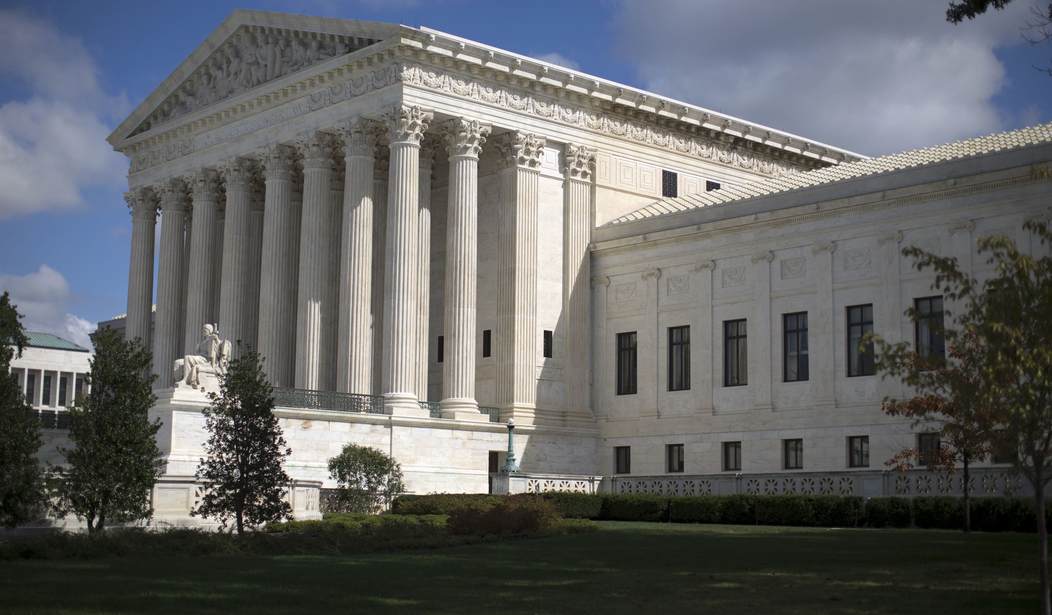To hear some liberals tell it, you would think that America is finished as a nation with the retirement of Supreme Court Justice Anthony Kennedy. One such person tweeted: “Literally in tears. Haven’t felt this hopeless in a long time. With Justice Kennedy leaving, we now have two options as Americans: get fitted for your Nazi uniform or report directly to your death camp. How do you fight the darkness without light? My spark is going out.”
California Senator Kamala Harris said that Trump’s replacement for Kennedy (whoever that will be—unknown as of this writing) means the “destruction of the Constitution of the United States.”
These sentiments are terribly wrong on so many fronts. The founders created an experiment where “we the people” would govern ourselves. But in recent decades the high court has taken upon itself more power than King George III could possibly have lusted after. In fact, the swing voter on the Supreme Court – the now-retiring Anthony Kennedy – often experienced such power.
But the founders clearly felt that both a monarchy and an oligarchy (the rule by a few) were tyrannical. James Madison, a key architect to the Constitution, put it this way: “The accumulation of all powers, legislative, executive, and judiciary, in the same hands, whether of one, a few, or many, and whether hereditary, self-appointed, or elective, may justly be pronounced the very definition of tyranny.”
However, through the years, we have experienced the Supreme Court virtually governing our lives, and we assume that’s the way it is supposed to be.
Consider what the courts, especially the Supreme Court, have ushered in during the last several decades by legislating (not adjudicating) from the bench:
Recommended
• Pornography on demand, Roth v. United States (1957) and Miller v. California (1973).
• No school prayer allowed, Engel v. Vitale (1962) and Murray v. Curlette (1963).
• No official Bible reading of a devotional nature in schools, Abbington v. Schempp (1963).
• Abortion on demand, through Roe v. Wade (1973), which dissenting Justice Byron White called an act of “raw judicial power.” Roe was based on a series of lies, and before she died, the “Roe” in this case, Jane McCorvey, became a pro-life activist who tried in vain to get the case overturned.
• No Ten Commandments to be posted in the schools, Stone v. Graham (1980). They actually said in that decision: “If the posted copies of the Ten Commandments are to have any effect at all, it will be to induce the schoolchildren to read, meditate upon, perhaps to venerate and obey, the Commandments. However desirable this might be as a matter of private devotion, it is not a permissible state objective under the Establishment Clause.”
• No equal time for creation science in the classroom, Edwards v. Aguilard (1987).
• States are not free (as in the case of Colorado) to prohibit the granting of special legal rights to homosexuals, Romer v. Evans (1996).
• States are not free (as in the case of Texas) to outlaw sodomy, Lawrence v. Texas (2003). This decision was cited by the Massachusetts Supreme Court when it took the next logical step and granted the right to same-sex marriage.
• Same-sex marriage is supposedly the law of the land, Obergefell v. Hodges (2015). In their hubris, the Supreme Court actually thought they could redefine what marriage is, thus overturningmillennia of marriage traditions all over the world in virtually every culture. Anthony Kennedy wrote that decision, as he did the Lawrence decision, which was a precursor to it.
• Colleges (or law schools, as in this case) are free to oust a Christian group from campus if it will not allow for homosexuals to be among their leaders, Martinez v. Hastings (2010).
And on it goes . . .
Yet, the Supreme Court is supposed to interpret the Constitution and evaluate whether a certain law being challenged does or does not pass Constitutional muster. The justices are not supposed to just dream about what they think the Constitution should say.
In the history of the world, America has enjoyed the stability of the Constitution, which was predicated on our God-given rights (as seen in the Declaration of Independence).
Ronald Reagan put it this way: “In this country of ours took place the greatest revolution that has ever taken place in world’s history . . . Every other revolution simply exchanged one set of rulers for another. But here for the first time in all the thousands of years of man’s relation to man, a little group of the men, the founding fathers – for the first time – established the idea that you and I had within ourselves the God-given right and ability to determine our own destiny.”
Instead, activist courts, taking on more power than they ought to have under the Constitution, have helped turn America into a moral swamp.
























Join the conversation as a VIP Member